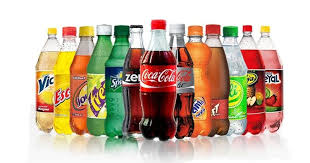There is need for clarity from the Holness administration on where it is going with its policy to reduce the consumption of sugary drinks whether by taxing the products or by voluntary restraint by manufacturers.
Most countries that have tackled the issue opted for the former approach. In the Caribbean, for instance, Barbados imposed a 10 per cent tax on sugar-sweetened drinks in 2015, the same rate as Mexico, where a similar tax was imposed a year earlier.
In April, a sugar tax, announced nearly two years ago, will also come into force in Britain at a rate of £0.18 per litre on drinks that have five grams of sugar or more per 100 millilitres but will rise to £0.24 per litre if the drink has eight grams of sugar or more per 100ml. The Irish are also introducing such a tax, which they say will be roughly analogous to the UK rates.
On the face of it, these taxes on soft drinks should be good for government coffers. But they are not primarily aimed at covering fiscal gaps and creating budget surpluses. Rather, they aim to combat a bulging public-health crisis: obesity. And there are few regions in the world where the problem is worse, or growing as rapidly, than the Caribbean, including Jamaica.
For instance, Fitzroy Henry, a professor in public-health nutrition at Jamaica’s University of Technology (UTech), who heads a government multisectoral task force on food, estimated last year that 20,000 Jamaicans become overweight, or obese, annually. Moreover, at the start of the millennium, an estimated 45 per cent of adults were deemed obese. That figure is now around 60 per cent but higher for women.
“Being overweight is the most important leading cause of death in Jamaica,” said Henry at the launch of his task force eight months ago. What Professor Henry and his team, which includes food and beverage manufacturers, advised Health Minister Christopher Tufton to do has not been made public.




Leave A Comment